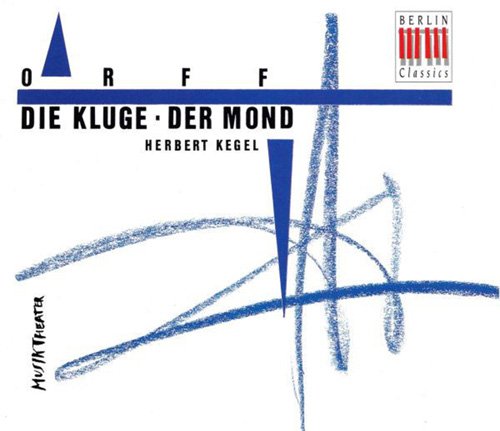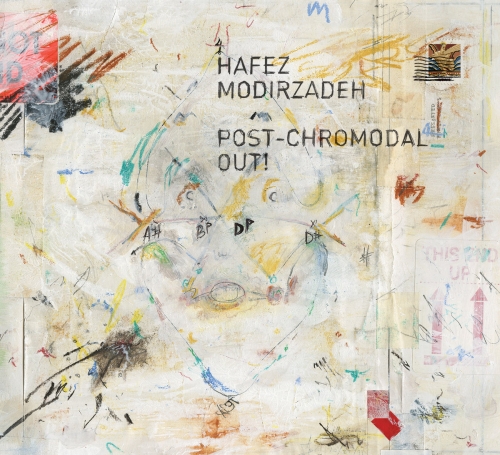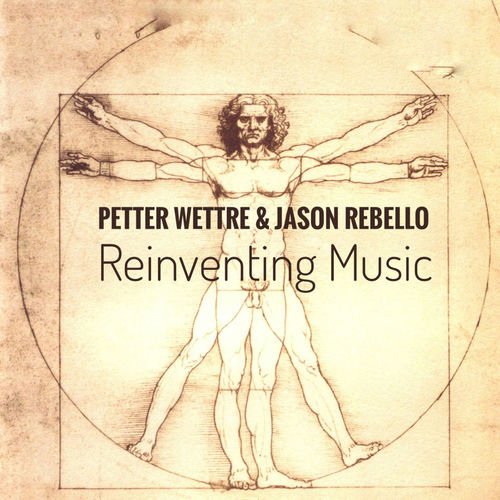Herbert Kegel - Orff: Die Kluge & Der Mond (1993)

Artist: Herbert Kegel
Title: Orff: Die Kluge & Der Mond
Year Of Release: 1993
Label: Berlin Classics
Genre: Classical
Quality: FLAC (image + .cue)
Total Time: 02:33:19
Total Size: 666 MB
WebSite: Album Preview
Tracklist:Title: Orff: Die Kluge & Der Mond
Year Of Release: 1993
Label: Berlin Classics
Genre: Classical
Quality: FLAC (image + .cue)
Total Time: 02:33:19
Total Size: 666 MB
WebSite: Album Preview
CD 1
Die Kluge
01 Scene 1: Die Geschichte vom Konig und der klugen Frau - Oh hatt' ich meiner Tochter nur geglaubt 8:08
02 Scene 2: Spass muss sein, sprach die Katze zum Vogel und frass ihn 1:26
03 Scene 3: Du, also du bist die Kluge 16:35
04 Scene 4: Der Konig hat wieder eine Frau 3:25
05 Scene 5: Alles ging die Kreuz, die Quer 13:19
06 Scene 6: Weh mir, wie konnt mir das geschehn 7:51
07 Scene 7: Heda! Was gibt's, wer ists? 8:35
08 Scene 8: Frag diesen Mann, was er da schafft 2:40
09 Scene 9: So also, so war's gemeint 2:56
10 Scene 10: Lass mich die Tafel dir bereiten 9:37
11 Scene 11: Hab' ich euch endlich, hab' ich euch erwischt 1:38
CD 2
01 Scene 12: Komm da heraus, der Konig lasst dich frei 1:09
02 Scene 12: Was ist, wo bin ich, wer hat das getan? 5:53
Der Mond
03 Vorzeiten gab es ein Land 2:53
04 Was ist das? Was ist das fur ein Licht? 5:43
05 Und wann ich hamwarts geh' 1:05
06 Der Mond ist fort, wer hat ihn denn gestohlen? 2:07
07 Wirt, Leute Kommen! 0:56
08 Wenn ihr nachts aus der Taberne 3:01
09 So hangt ihn auf - Seht den Mond 1:52
10 Und sie brachten den Geraubten glucklich in Ihr Land 1:08
11 Zwischenspiel 3:33
12 Die 4 versorgten den Mond mit Ol 1:19
13 Lieg' ich hier an dieser Schwelle 5:32
14 Und als der Erste gestorben war 3:20
15 Und als der Mond dort leuchtete 1:59
16 Liebe Leichen, hort uns an 2:57
17 Du spielst, als lagst du noch im Grab 1:27
18 Floret silva undique 3:08
19 Was ist da dos? 2:05
20 Betrug! Betrug! Nun ist's genug! 3:07
21 Was ist denn das? Was ist das fur ein Licht? 5:34
22 Wie kalt ist's draussen in der Welt 2:16
23 Sitz ich am hohen Himmel 5:37
24 Hort ihr Toten, lasst euch sagen 3:41
25 So brachte Petrus die Toten Zur Ruh' 1:11
26 Ah, da hangt ja der Mond! 4:22
Known in the United States primarily as the conductor of a surefire recording of Orff's Carmina Burana, Herbert Kegel was respected in Europe as a pivotal figure in establishing the works of such individual Modernists as Blacher, Dallapiccola, Dessau, Penderecki, and Nono in the concert hall and on discs. He was one of the first to champion Britten's War Requiem, while his recording of Schoenberg's Moses und Aron was instrumental in keeping this difficult and challenging work before the public. His involvement with Orff's music typifies the duality of a distinguished career whose impact is not yet fully appreciated and whose legacy remains to be assimilated, for beside the ever-popular Carmina Burana, Kegel also recorded -- superbly -- the remaining cantatas, Catulli Carmina and Trionfo di Afrodite, speech-inflected works the composer regarded as parts of a single cycle of Trionfi and that look ahead to the uncompromising utterance of his Antigonae and Oedipus der Tyrann. Kegel studied at the Dresden Conservatory, where Karl Böhm was one of his teachers, from 1935 to 1940, beginning his career, after serving as a conscript during the war in 1946, as kapellmeister of the Volkstheater Rostock. From 1949 to 1978 he was associated with the Leipzig Radio Orchestra & Choir, becoming choirmaster, music director, and principal conductor of the Great Radio Orchestra and Radio Choir in 1953. He became principal conductor of the Leipzig Symphony Orchestra & Choir in 1960. In 1977 he was named principal conductor of the Dresden Philharmonic, a post he held until 1985. From 1985 until his death he frequently appeared as guest conductor at the Dresden and Leipzig opera houses, the Staatsoper Berlin, and the NHK Orchestra, Tokyo. Teaching engagements included a professorship with the Mendelssohn Bartholdy Hochschule für Musik in Leipzig from 1975 until 1978, and a Dresden master class in 1980. Kegel's grasp extended over the standard repertoire, from Bach to Stravinsky, though his center of interest revolved around the German Romantics, Bruckner and Mahler in particular, and the Modernists, great and minor -- Hartmann, Honegger, or Theodorakis no less than Bartók, Berg, and Hindemith -- with a smattering of such audience pleasers as Carmen and Margarethe (that is, Gounod's Faust for German audiences). Several recordings -- including Carmina Burana and Mahler's Symphony No. 4 -- feature distinguished solo work by Kegel's second wife, soprano Celestina Casapietra. His manner was without affectation or grandiosity, rhythmically alert and lyrically poised, always efficient and often inspired. He committed suicide in Dresden on November 20, 1990.
Related Release:








